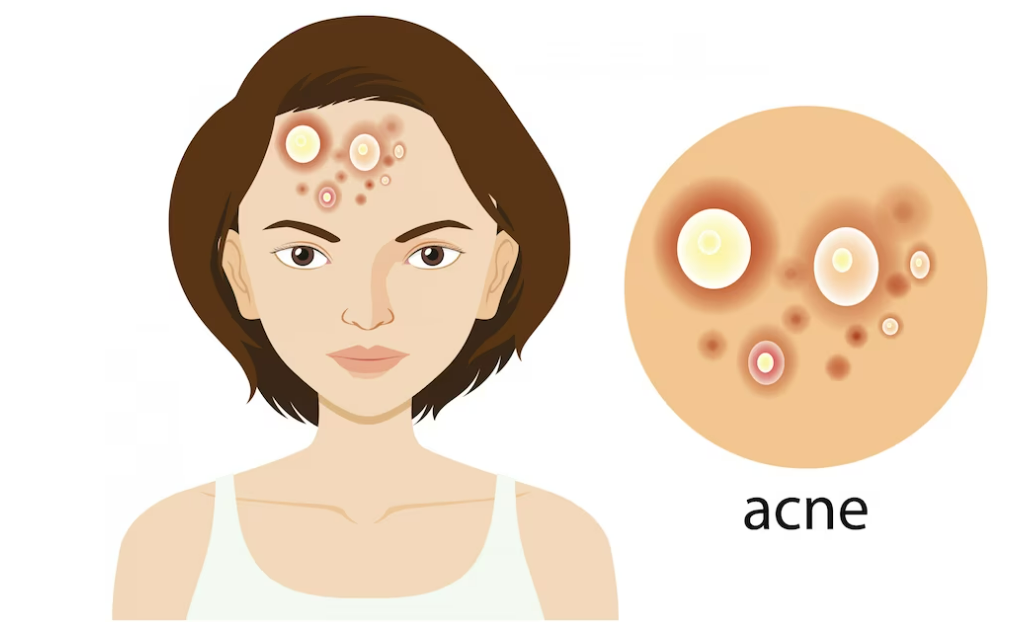
The most uncomfortable aspect of having acne is the appearance of acne scars. Scars from acne are fairly common, so one should not feel self-conscious about them. Acne scars are temporary, though. There are some available therapies. While some treatments use the skin's own collagen to help the skin recover, some therapies virtually eliminate the scars.
One in five people between the ages of 11 and 30 will have scarring, while 80% of people will have acne. The social life of individuals may be impacted by acne scars, which can also lower their self-esteem and lead to psychological anguish.
Acne breakouts frequently result in indentation scars known as pitted acne scars. People frequently struggle to get rid of acne scars, and they do not disappear rapidly. However, various treatment methods may help minimise the look of acne scars. But are they safe? This blog will try to answer all the related concerns and questions and will include a discussion on different treatment options for acne scars.

What Causes Acne Scars?
Before treating acne scars, one should understand the reason for their occurrence. One should remember that prevention is preferable to treatment; therefore, if individuals take care of their skin, they will not have to worry about scars. Here are some of the causes of breakouts and scars:
-
Breakouts caused by puberty.
-
Inflammation and cystic acne.
-
Acne popping.
-
Direct exposure to sun rays.
-
Pollution
-
Use of harsh skincare products and medications.
Visit a top dermatology hospital as soon as possible to get skin treatment in Mangalore before your acne scars become deeper.
Types of Acne Scars
Treatment solutions may differ slightly based on the type of scarring caused by acne. There are three major kinds:
-
Atrophic Scars
Small indentations in the skin appear as scars. They happen when the skin doesn't produce enough fibroblasts during the healing process. Fibroblasts are cells that help with wound healing and collagen formation.
-
Hypertrophic Scars
These develop when the skin produces more fibroblasts while the acne area heals, resulting in a raised scar.
-
Keloid Scars
These scars resemble hypertrophic scars but are thicker than the original acne area. Hyperpigmentation occurs frequently, making them darker than the surrounding skin. They can be either red or brown. Itching or pain may also occur.
How are Acne Scars Reduced?
The methods for reducing acne scars vary depending on the types of scars the individual is suffering from and their severity. Hence, it is recommended not to start the treatment immediately until the acne is completely cured. Some of the common ways of reducing acne scars include some dermatological treatments, which are discussed below:
Resurfacing Procedures
Laser therapy, dermabrasion, microdermabrasion, and chemical peels can all help improve the appearance of shallow acne scars. They all entail removing layers of skin cells to stimulate the skin's production of new cells. If someone has darker skin, they should avoid dermabrasion, which can cause scarring and discolouration. Some laser therapies may also achieve this; however, Nd: YAG lasers are often safer for darker skin.
There are two types of laser resurfacing: ablative and non-ablative. The ablative laser eliminates a small amount of skin to reveal a smoother texture. The non-ablative laser produces heat and collagen. The laser induces damage to trigger the wound-healing process. It also encourages dermal fibroblasts to replenish depleted collagen and elastin. Laser resurfacing is a non-invasive, rapid procedure that requires 6 to 8 treatments.
Dermabrasion involves the removal of the epidermis to modify the skin's structural proteins in the reticular dermis (the thick bottom layer of the dermis). This procedure reorganises the papillary dermal collagen without harming the reticular dermis. It is the best treatment for healing rolling scars or boxcar scars. However, this treatment may raise the risk of sun sensitivity and photodamage. Hence, one should always protect their skin after treatment to avoid hyperpigmentation.
Fillers
Shallower scars can be filled in by the dermatologist with substances such as hyaluronic acid, collagen, or the body’s fat. Although some fillers are permanent, the effects usually last a few months. There is no downtime, and it adds volume to the scar. However, it is only a temporary remedy because the body's enzymes gradually break down the fillers.
Micro Needling
If someone has a lot of depressed acne scars, they should consider collagen induction therapy. A motorised microneedling pen with rotating needles is used. The pen is used to stimulate collagen formation in depressed acne scars.
Micro-needling involves healing the skin by causing injuries to stimulate collagen formation. When paired with radiofrequency, the energy is released deeper into the skin. It increases the inflammatory response and remodels the dermal collagen. This is one of the most successful methods for reducing indented scarring with few adverse effects.
Radiofrequency Skin Tightening
Deep ice pick and boxcar scars can sometimes be efficiently treated with this treatment. A doctor will use radio frequency to tighten skin and conceal depressed acne scars.
Subscision
A sterile needle is inserted under the skin and used to rupture fibrous scar tissue and "loosen" depressed scars. Multiple sessions are required to attain the desired outcomes. The technique is more effective in treating rolling scars. Combining subcision with other scar repair treatments may yield superior results.
Injections
A series of corticosteroid injections may flatten and soften elevated and thick scars.
Surgery
Surgery involves elevating or splitting up tissue to minimise the look of depressed acne scars. Cryosurgery removes elevated acne scars, but it is not suggested for individuals with darker skin.
Consult a skin specialist in Mangalore to get the best treatment and care for acne scars.



















 5 Min Read
5 Min Read
















